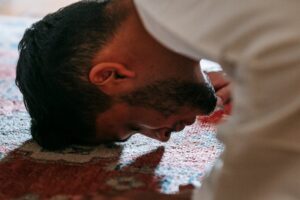“But perhaps you hate a thing and it is good for you; and perhaps you love a thing and it is bad for you. And Allah Knows, while you know not.” Suratul-Baqarah, Verse 216
This verse from Suratul-Baqarah was revealed during the very early stages of Islam, during the first year of Hijra specifically. The first major battle of Islam, the Battle of Badr, still had not even taken place yet. Since Islam was still in its early stages, not all of the Muslims were mature in their Iman. In fact, many of the Muslims who were not companions of the Prophet (PBUH) or amongst the Muhajireen (travelers with the Prophet (PBUH) from Makkah), accepted Islam because they saw a man, the Prophet (PBUH), as an honest man that seemed to be speaking words of wisdom, telling the truth, and also seemed to have a great impact on the people around him.
These Muslims specifically were from the Ansar, the people who lived in Madina before the Prophet (PBUH) and the Muhajireen traveled from Makkah. For this reason, they felt that there is no reason why they should not become Muslim and follow Islam. However, no Islamic battle had taken place yet so they did not recognize how serious Islam was. They were willing to follow the teachings of Islam but were not quite ready to dedicate their entire lives to its teachings. The Ansar were hesitant simply because they had just accepted Islam recently and did not have enough knowledge about it just yet.
As a result, Allah (swt) revealed this verse in Suratul-Baqarah. Allah (swt) revealed this verse to eliminate the doubts and strengthen the Iman of the Ansar. Allah (swt) states, “But perhaps you hate a thing and it is good for you; and perhaps you love a thing and it is bad for you. Allah knows while you know not.” This part of the verse is one of the countless life lessons that Allah (swt) has revealed to mankind. This is a life lesson that applied to the Muslims in the time of the Prophet (PBUH) and still applies to us today.
Many times throughout our lives, we face circumstances that we may think could not be any worse. We might think that there is no way out of this bad situation and that it is going to have a big impact on our lives. In your mind, nothing about this situation could possibly be good. However, Allah (swt) reminds us with this verse that we might not want something to happen because we think it is bad, but in reality, it is good for us later on. You might not understand why something happened to you, but just trust that Allah (swt) knows best and wants what is best for you.
The same holds true for the latter. Someone might believe that a situation is good for them, but in reality it is bad or Allah (swt) has something better for them in the future. A present day example of this is a job. A man once came to me and asked me to make dua for him. He wanted me to make dua that he gets a job that he had interviewed for. He stated that this was the best job for him and it would be a dream to earn the position. The time came when he was notified that he did not get the job. He came to me in tears because he really wanted the position. Some time passed and he came back to me. Only this time, he had good news. He told me that he earned a job position that was better than the last position he wanted in every way possible. The pay for his new position was more than double that of the previous position. This verse played an important role in his situation. He thought that the first position was the best option for him, but in reality it was not. Allah (swt) had a better opportunity for him in the near future.
It is important to remember, “And Allah knows, while you know not.”
By Ahmad Salah




